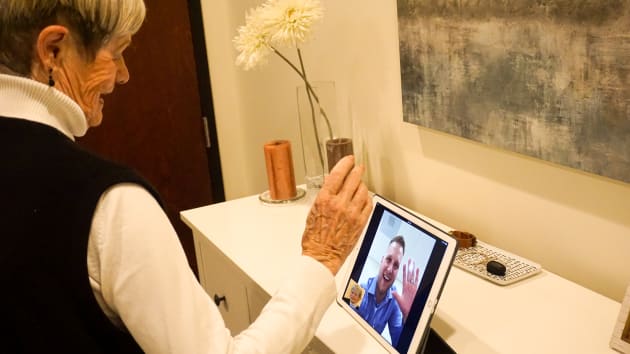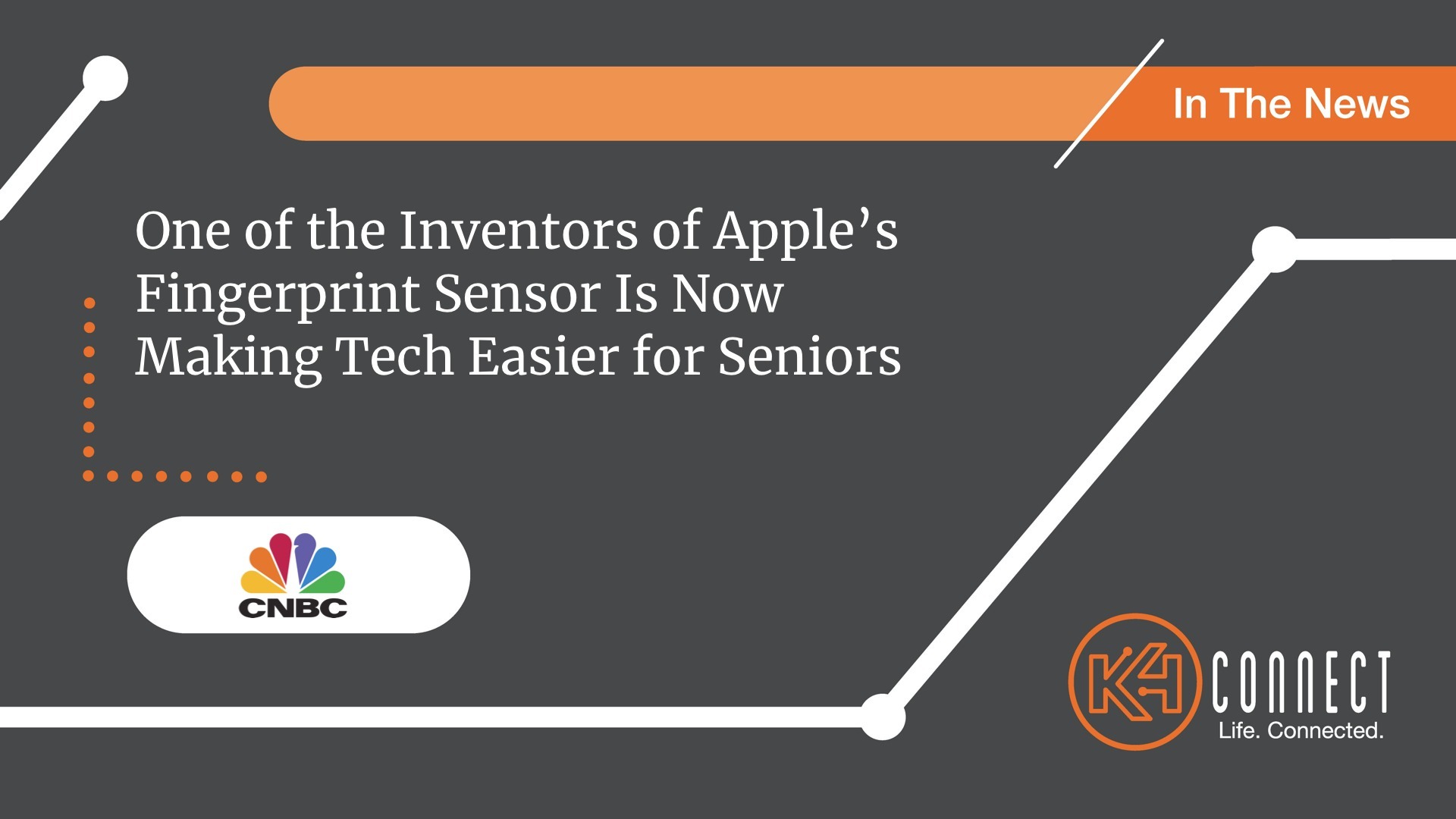AXA Venture Partners and Intel Capital are among investors pouring $12 million in Series B funding into K4Connect. Based in Raleigh, North Carolina, K4Connect aims to make the best new technologies accessible to seniors and people living with disabilities.
By: Lora Kolodny
October 23, 2018
In 2012, “biometric authentication” sounded like science fiction — scan your fingerprint into a mobile phone to unlock it and access your digital wallet.
An entrepreneur named Scott Moody helped take biometrics mainstream. He sold his first company, AuthenTec, to Apple in 2012, enabling features like Touch ID and Apple Pay in iOS devices.
Now Moody is working to ensure that seniors won’t be left behind as new technologies take over the home, whether it’s smart devices or on-demand apps. His new company, K4Connect, brings the latest tech to senior communities, and makes it all easy to operate without the need for expensive IT teams.
“There’s a joke that San Francisco is the premiere assisted living community for millennials,” Moody said, in an interview. “You can sit there and have everything brought to you that you ever may need. We integrate technologies that have been targeted toward a younger demographic and make them work for older adults and people living with disabilities. We’re integrating the best in technology to improve their lives.”
K4Connect’s system employs edge-cloud architecture, which means that even if the Wi-Fi goes out at a given facility, residents can still use their smart ovens, televisions, lights and more. K4Connect is currently used by at least 13,000 residents in senior living communities from Florida to California.

AXA Venture Partners and Intel Capital are among investors who just poured $12 million in Series B funding into K4Connect, bringing the company’s total capital raised to $22 million.
Moody said that his Raleigh, North Carolina-based start-up will use the funding to expand to new senior and assisted living communities. K4Connect is constantly piloting new technologies, he said, including voice-controlled devices. Moody has an eye on autonomous shuttles and robotics that could help seniors and people with disabilities stay as mobile and socially connected as they desire.
“It’s not that older people don’t like tech,” he said. “They just don’t like tech that was made by a 25-year-old, with a large font slapped on it.”

